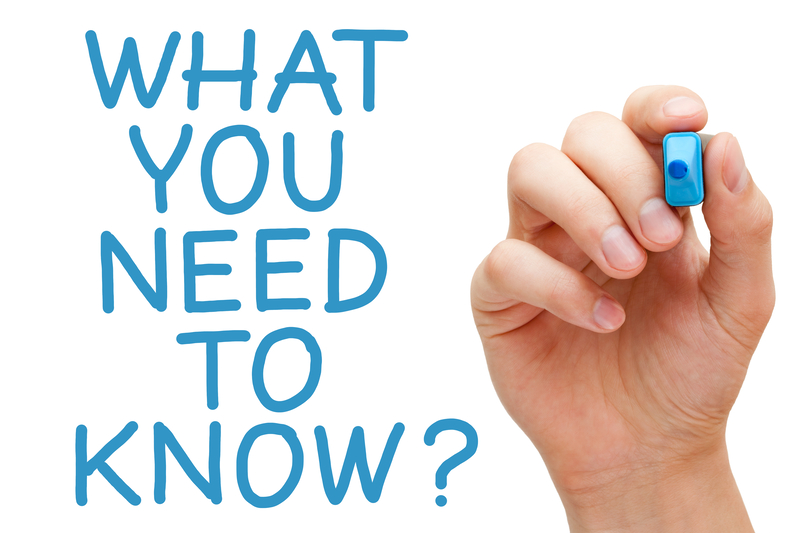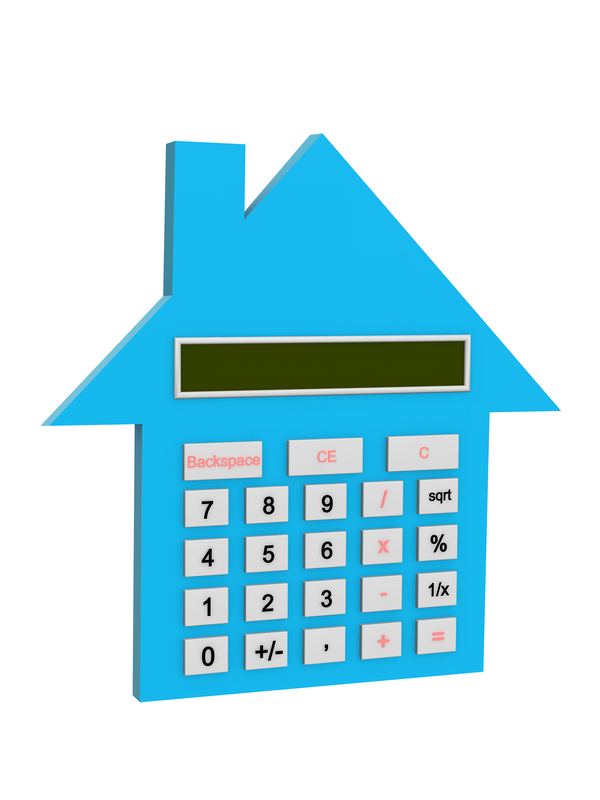
First time home buyer
For the first time home buyer, we’ve broken down the homebuying process into 15 main steps, creating a comprehensive buying-a-house checklist. Each step involves decisions and tasks—some stressful, some exciting, and some tedious. But each one gets you closer to your goal of homeownership. Our home buying education course covers these steps in more details, plus there are quizzes and generative AI to help you master the home buying process.
These AI assistants are part of our home buyer education course. You can try them out on chatgpt.
Our interactive, conversational AI assistants are built on open.ai, chatgpt. Try them out, use the links below. You will need an open.ai account - free. You can use the defined prompts/links we created or use your zip code or your own prompts.
Learning to use the chatgpt's is a real time-saver. We provide training and examples as part of the home buyer education course.
- How to buy a home
- Home Market Predictions - Read about, AI-Powered Home Market Predictions - Housing Market 2024
- Real Estate Commissions, Services, and Fees - Read more, What Homebuyers Need to Know About Buyer Agent Fees in 2024
- Neighborhood Insights - Read more about, AI-Powered Neighborhood Insights
- What is a mortgage? How to qualify for one. Try our AI Chatgpt - What is a mortgage, it includes a mortgage calculator, an amortization schedule calculator and what is a mortgage - free, fun, easy. Read more about, How to Qualify for a Mortgage
1. Make Sure You’re Ready
Sure, there's being financially ready to buy a house (see Step 2 for details), but are you emotionally ready? Even if it's just your starter home, you're making a significant financial commitment and putting down roots.
Think about your goals for the next few years. Are you buying with a partner, and if so, are you both on the same page financially? Is there a chance you might need to relocate for work? Are you planning to start a family? These big-picture questions can help you decide if this is the right time to buy a house.
2. Organize Your Finances
Buying a house might be the biggest financial decision you'll ever make. So, before you dive in, it's crucial to get your finances in order.
Income and Employment Status
Your lender will want to see not just how much money you make but also that your income source is stable and reliable. Typically, they look for about two years of work history. If you’re on payroll, you’ll likely need to provide recent pay stubs and W-2s. If you’re self-employed or receiving passive income like social security or pensions, you’ll need to submit your tax returns and other documents.
Debt-to-Income Ratio (DTI)
Your DTI helps your lender see how much of your monthly income goes to debt payments, allowing them to evaluate how much mortgage debt you can handle. DTI is calculated by dividing your total monthly debt by your gross monthly income and multiplying this number by 100 to get a percentage. For example, if your monthly debts total $2,000 and your gross monthly income is $6,000, your DTI is 33%. Lenders generally prefer a DTI of 43% or less for most mortgage options, though this can vary based on the lender, loan type, and other factors.
Credit Score
Your credit score plays a significant role in determining the loans and interest rates you qualify for. It gives lenders insight into your history of paying debts on time. Improving your credit score and reducing your debt can significantly enhance your mortgage options.
Your credit score is based on:
- Your payment history
- The amount of money you owe
- The length of your credit history
- Types of credit you’ve used
- Your pursuit of new credit
While buying a home with no money down is possible, most homeowners need to have some cash for a down payment. The amount you’ll need depends on your loan type and how much you borrow. You can buy a home with as little as 3% down, although putting down more has benefits, such as lower monthly payments and potentially avoiding mortgage insurance.
3. Plan Your Down Payment
While buying a home with no money down is possible, most homeowners need to have some cash for a down payment. The amount you’ll need depends on your loan type and how much you borrow. You can buy a home with as little as 3% down, although putting down more has benefits, such as lower monthly payments and potentially avoiding mortgage insurance.
Use A Mortgage Calculator
A home affordability calculator can help you determine your budget by considering your income, debts, location, and down payment amount. This tool provides insight into your potential monthly mortgage payments and overall financial outlook as a homeowner. It’s important to keep your ambitions realistic. Qualifying for a large mortgage doesn’t mean you should stretch your budget to its limit.
Once you know what you can afford, decide how much you want to save for a down payment. You don't need to put down 20% to buy a house; many homeowners opt to put down less. A smaller down payment requires less money upfront but means you'll have to pay mortgage insurance, which typically increases your monthly payment. The type of home loan you use also determines the minimum down payment required.
First time home buyer
If this is your first home or if you haven't owned a house in a while, consider state first time home buyer programs. Many offer financial assistance, including down payment assistance. If you have a friend or family member who can help, you may also use gift money to increase your down payment. Rules about gift money vary by loan program.
4. Create a Wish List
Creating a list of must-haves and nice-to-haves for your house is an enjoyable part of the process. Whether you’re looking for a starter home or a long-term residence, consider the following:
- Detached House or Attached Unit? If you want a backyard, a single-family home might be best. For lower maintenance or urban living, a condo or townhouse could be ideal.
- Location. Choose a neighborhood based on safety, amenities (like walkability, green spaces, or coffee shops), and costs, including property taxes and HOA fees. Consider the school district, even if you don’t plan to have children, as school quality can affect home value and resale price.
- Move-in Ready or Fixer-upper? Move-in-ready homes are convenient, but a fixer-upper can be more affordable and customizable, provided you're prepared for the renovation work.

5. Find the Right Mortgage for You
The type of mortgage you choose affects what you'll need to qualify for the loan, including the required down payment, and how you'll pay it back. It is important, if you want to save money, to Shop Around for a Mortgage: Find the Best Rates & Save. Thousands
Here’s a detailed look at common mortgage types:
Conventional Loans:
Not guaranteed by the federal government, these loans offer low minimum down payments but have more stringent qualification requirements. They are ideal for borrowers with good credit scores and stable incomes.
FHA Loans:
Backed by the Federal Housing Administration, these loans are easier to qualify for than conventional loans but require mortgage insurance premiums. They are suitable for first time home buyers or those with lower credit scores.
VA Loans:
Offered by the Department of Veterans Affairs, these loans are available to active or former service members and eligible spouses. They allow for no down payment and have competitive interest rates.
USDA Loans:
Backed by the U.S. Department of Agriculture, these loans are for rural and suburban homebuyers and offer no down payment options. They are intended for low-to-moderate-income buyers.
Jumbo Loans:
For homes that exceed conforming loan limits, these loans require larger down payments and higher credit scores. They are used for purchasing luxury properties in high-cost areas.
Renovation Loans:
These allow you to include the cost of home improvements in the total mortgage amount. This can be an efficient way to finance repairs and renovations at a lower interest rate than other types of loans.
Adjustable-Rate Mortgages (ARMs):
These loans have interest rates that can change periodically. They often start with lower rates than fixed-rate mortgages, but the rates can increase or decrease over time. They are suitable for buyers who plan to sell or refinance before the rate adjusts.
6. Get Preapproved for a Mortgage
With your budget and preferred loan type in mind, start shopping for a mortgage lender. Getting preapproved gives you real numbers and shows sellers and agents that you're a serious buyer.
7. Find a Real Estate Agent or DIY
A good real estate agent can make a significant difference throughout the buying process. Interview at least three agents and ask for recommendations from recent homebuyers. Avoid using the seller's agent to ensure you have an advocate on your side.
Do it Yourself -
What are the steps for a home buyer without a realtor?
Although 74% of Americans say it's important to have an agent represent them in the home-buying process, 50% of upcoming buyers would consider forgoing an agent entirely because of recent changes that would require them to pay their own agent's commission."
Here are the difficulties mentioned about real estate agents:
- Half of Recent Buyers Think Agents Prioritize Profits Over Their Clients' Best Interests
- 1 in 3 Buyers Would Be Less Inclined to Hire an Agent If They Had to Pay Commission
- Half of Buyers Don't Want to Pay Their Agent More Than 2% in Commission
- Nearly All Buyers Would Change Their Home-Buying Strategy If They Had to Pay Their Agent
8. Go Shopping!
This step merits an exclamation point. Take your online search to the next level by visiting homes in person. Make the most of your walk-throughs, taking photos and noting potential issues. We have checklist and templates to help you manage this step. Equally important, is the neighborhood. Check out our Neighborhood Insights AI tool to learn about the neighborhoods you are considering moving to. Neighborhood Insights - Read more about, AI-Powered Neighborhood Insights

9. Make an Offer
Found a home that’s right for you? Now it’s time to make an offer. Your real estate agent can provide comparable sales information and any intel about the sellers they might have gleaned from the seller's agent. You may also want help from a real estate attorney. In some states, a lawyer is required for any real estate transaction.
If the seller rejects your offer, you might make a counteroffer or walk away; it depends on why they turned you down. If the seller counters, talk it out with your agent to decide whether to accept or make your own counteroffer. This is where a buyer’s agent really earns their keep.
10. Finalize Your Mortgage
You know the property you want to buy and how much you’ll have to pay for it. Now choose a lender to get a mortgage from. You can go with the lender that preapproved you or start fresh with a different one. Even with an online-first lender, you’ll often work closely with a loan officer to complete the actual application.
This is a paperwork-heavy process, so get ready to do a lot of uploading. Here’s what you’re likely to need:
- W-2 forms from the past two years (possibly more if you’ve changed employers).
- Pay stubs from the past 30 to 60 days.
- Proof of other sources of income, including documentation of any gift money.
- Federal income tax returns from the past two years.
- Recent bank statements, usually for the past couple of months.
- Details on long-term debts like car or student loans.
- ID and Social Security number.
Once your mortgage application is complete, you’ll go into underwriting. During this process, the lender makes a final decision on whether to give you the loan; it's essentially making sure there’s not anything about the deal that’s too risky.
Underwriting includes a deep dive into your finances. The lender will also look at the home you’ve chosen via an appraisal (see Step 13 below) and request a title search.
11. Get Homeowners Insurance
It might feel strange to take out an insurance policy on a home you don’t own yet, but most lenders make securing homeowners insurance a condition of giving you a mortgage. You’ll want enough coverage to fully replace the home, which might not be the same as your purchase price or the appraised value, and typically the policy should become effective on your closing date.
12. Schedule a Home Inspection
A basic home inspection can reveal issues you might face down
the road and point out necessary repairs. This visual assessment covers all aspects of the house and its systems, from the foundation to the roof. If you have a particular concern, like mold or radon, you may want to get a specialized inspection in addition to the standard one. If the home has features such as a pool, septic system, or retaining walls, you may want these inspected as well.
You should choose the home inspector and pay for the inspection. If it uncovers problems that weren’t included in the seller’s disclosures, you may be able to negotiate with the seller (see Step 14).
13. Have the Home Appraised
The home appraisal is separate from the home inspection. While the home inspection is for your peace of mind, the appraisal is for the lender, which doesn’t want to lend you more money than the home is actually worth. An appraisal looks closely at the home you’re buying and at comparable recently sold homes to determine the market value of the property.
Your lender will choose the appraiser, but you’ll pay for the appraisal. Even if you’re buying a house with cash, you may want to consider hiring an appraiser yourself to ensure your investment is sound.
14. Negotiate Any Repairs or Credits with the Seller
Though some items, like prorating property taxes or HOA fees, will have been addressed in your offer letter, you may have some items to negotiate before closing.
Your ability to negotiate can hinge on the market conditions. In a strong seller’s market, it can be difficult to get concessions since the seller can simply go to their next offer. But if it’s an issue that any buyer would flag—like a necessary repair—you may have leverage. In a buyer’s market, almost any aspect of the transaction can be negotiated, including having the seller pay some of your closing costs or loan points.
15. Close on Your New Home
You’ve finally made it to the last step! Familiarize yourself with the standard closing documents ahead of time to make the closing process less nerve-wracking.
Your lender must provide you with the closing disclosure at least three days before the actual closing. You can compare it with your Loan Estimate to see whether and how any closing costs have changed. This will let you know how much total cash you’ll need to close.
On or near closing day, you’ll do a final walk-through with your real estate agent. You’ll probably be buzzing with excitement, but make sure to check that everything is as agreed upon—for example, that all the appliances that are supposed to be included in the sale are still there.
It’s been a whirlwind of emotions and seemingly endless paperwork, but now you’re getting the keys to your new home. Congratulations, you did it!






